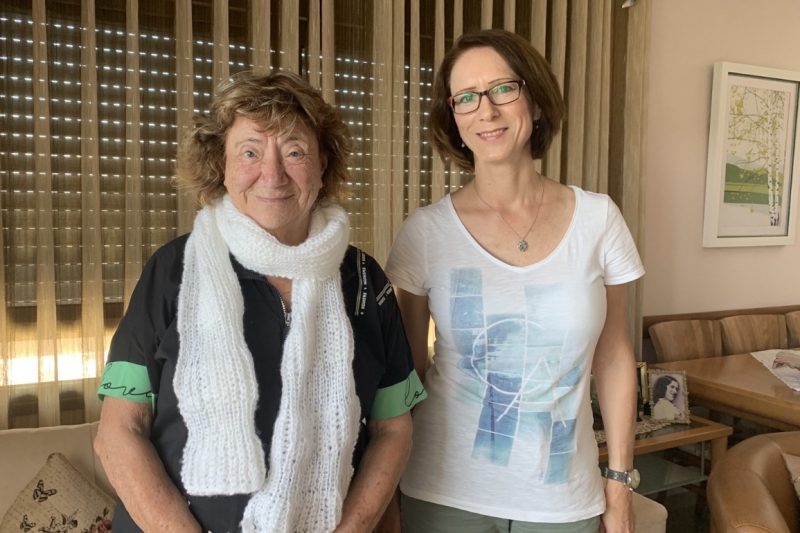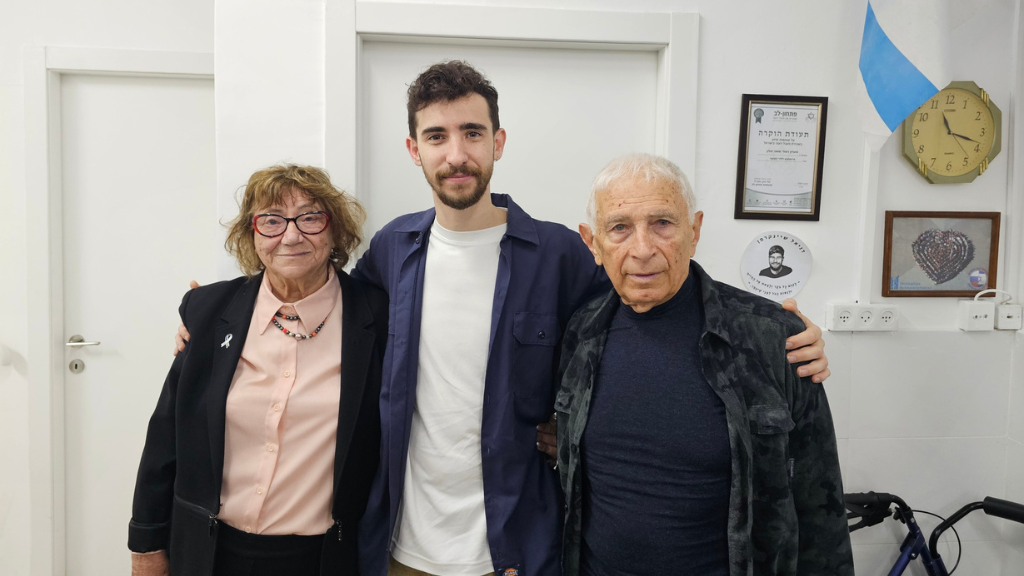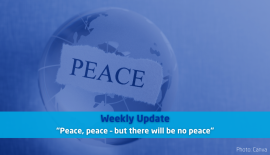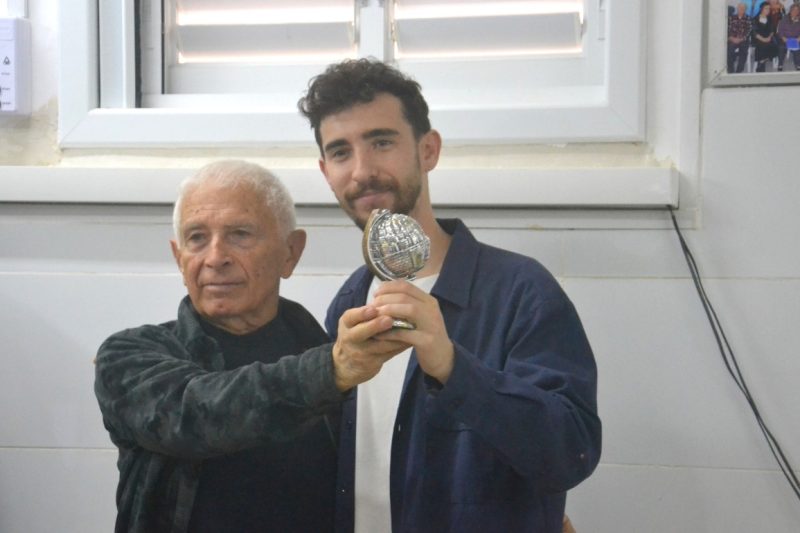“There is Only One Country for Us”
“Gita Koifman has lived in three countries. She feels at home in only one—Eretz Israel. “Even as a child I wanted to get out of the Soviet Union. I had no idea where Tel Aviv was, but I wanted to go there; it was somehow imprinted in my genetic memory,” says Koifman, who leads a large association of Russian- speaking Holocaust survivors in Israel and is supported by Christians for Israel.
Gita’s life began in a Jewish shtetl, Briceni, in the north of Moldova. Of the 5600 inhabitants, 5400 spoke Yiddish as their mother tongue. Today there is a dash next to ‘Jewish’ on the population list. After the German-Romanian invasion in the summer of 1941, Gita’s extended family and thousands of Bessarabian Jews were herded on foot across the Dniester River to the Osarinzy ghetto near Mogilow-Podolski. Gita and her parents barely survived. “Mom’s three brothers and their families, Dad’s three sisters and their families and his parents died.”
When they returned, everything had been destroyed. They found shelter with Aunt Hannah Schuster in Sovietskaya Street. Gita’s grandfather found refuge for his soul in the Torah. “I remember how he always went to the synagogue,” says Gita. “Dad, on the other hand, lost his faith in the war.” Like so many. Perhaps one of the worst German war crimes.
Arriving at Last
The post-war years brought Gita’s family, along with hundreds of thousands of refugees, to the undestroyed Ukrainian city of Chernivtsi. But she never really arrived here either. Together with her husband, Gita took advantage of the political thaw in the early 1970s to emigrate to Israel. At the time, this meant unimaginable hardship and reprisals. And it was a farewell forever. “We had to leave everything behind,” says Gita.
Gita and her husband Mikhail arrived in Haifa in June 1973, not knowing anyone in the country or anything about Jewish traditions. Their neighbours, Sara and Menachem Perel, invited them over for Shabbat. “I noticed that Sara had a number on her arm,” Gita recalls. “We didn’t have anything like that in the ghetto.” A few months later, the Yom Kippur War broke out. As both families sat in the bunker, Sara told her story.

Gita Koifman with C4I team member Anemone Rüger. Gita Koifman, herself a survivor, serves as the chairwoman of a Russian-speaking association of Holocaust Survivors in Israel | Photo: C4I
The Number on Sara’s Arm
“She was the only member of her family to survive Auschwitz,” says Gita. “She was 16 or 17 when she was liberated, but she was so sick and emaciated that she couldn’t stand up. In her delirium, she saw a Soviet soldier bending over her, waiting for a reaction. “Leave me alone. Just let me die,” she told him.
“Then he suddenly spoke to her in Yiddish. “Listen,” he said. “I am from Vinnitsa. There’s a concentration camp there too. I have no idea if any of my family are still alive. You are my family now. I won’t leave you here.” And so he took her up on his arms and carried her out.
Months later, as Sara wandered aimlessly through the deserted streets of her hometown of Budapest, where none of her relatives had survived, the soldier’s words came back to her mind. “Your home is in Palestine.
There are people from there who are looking for people like you, and they will help you get to Palestine. Our home is there and only there.”
She met Menachem on the ship to British-Mandate Palestine, and the two of them began a new life. So did Gita and Mikhail, three decades later. “It was the best decision of our lives,” says Gita. “There were a thousand reasons for it not to happen. But God made it possible, He alone!”
Grieving Together and Finding Hope
Gita says this even after 7 October. In tears. “It hurts so much! These are our children, our grandchildren!” She commemorates Auschwitz liberation day with survivors her own age—and with Itay, who explains how he survived the Hamas massacre. Together with nine good friends, he went to the Nova Festival to celebrate Sukkot in a relaxed atmosphere. The first alarm in the morning didn’t worry them too much— they had all done their military service and were used to constant danger. Then suddenly they were on the run. When a girl screamed for help, Itay ran back until he himself came under fire. He hid for six hours before being rescued by Israeli police. None of his friends survived the massacre.
How does he cope with these terrible memories? “My grandpa. My grandpa helps me. He survived the Holocaust. I only had one day of Holocaust, he had years. He was a child back then; it was much worse for him. He built a new life in Israel, he raised up a family. His story gives me strength to live on.”
Kindly join us in supporting the many Holocaust survivors and Jewish elderly in Ukraine.
Will you help? Any amount helps.
Support in €
Donate in US $






